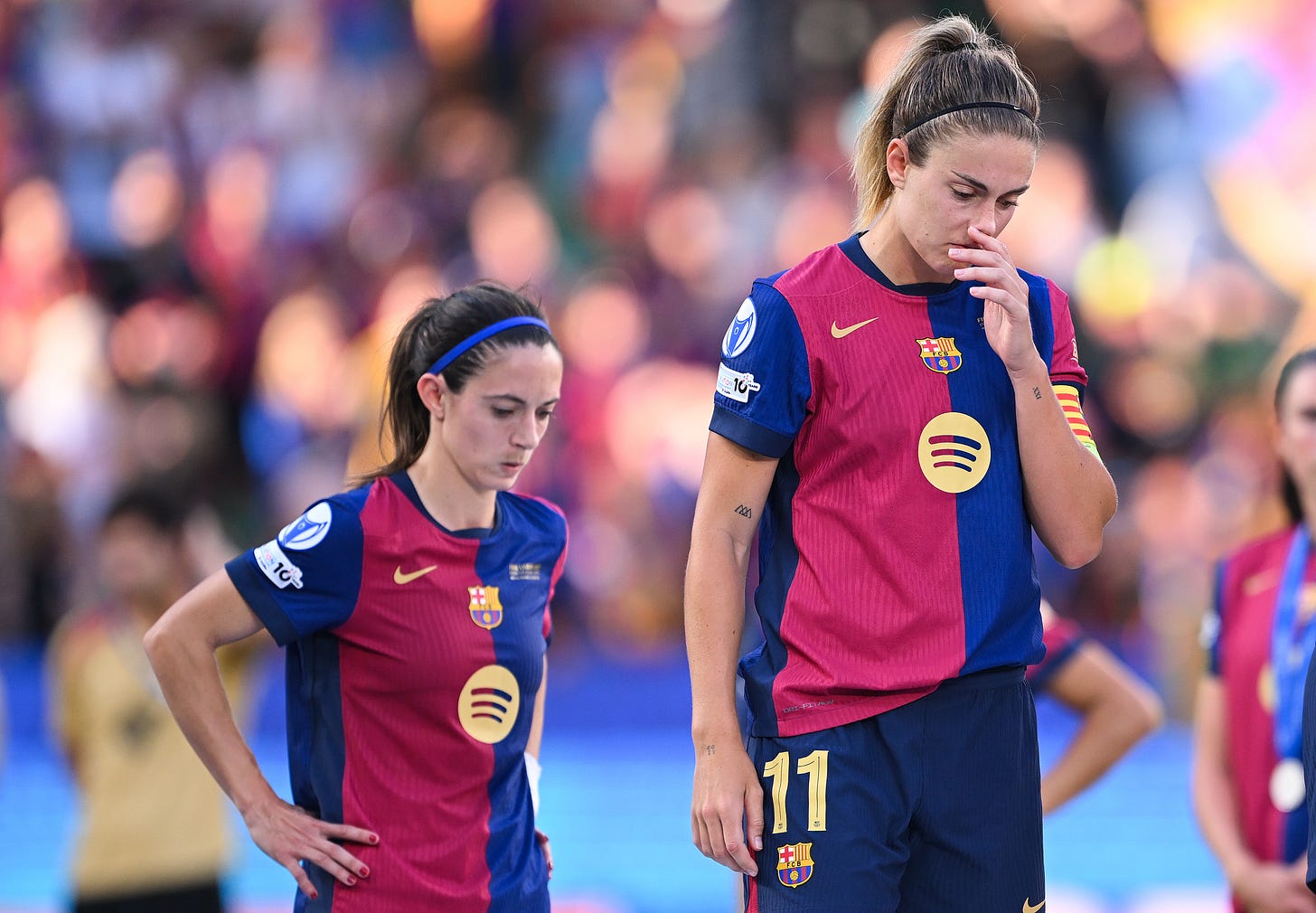What is happening at Barcelona?
Financial restrictions have influenced the departures of several key players with more exits expected this summer
The queens of Liga F, champions of the Copa del Reina and Supercopa de España Feminina, and three Champions League trophies: few teams have been as dominant as Barcelona in the last five years.
The team’s stars Aitana Bonmati and Alexia Putellas have also won a combined four Ballon …






